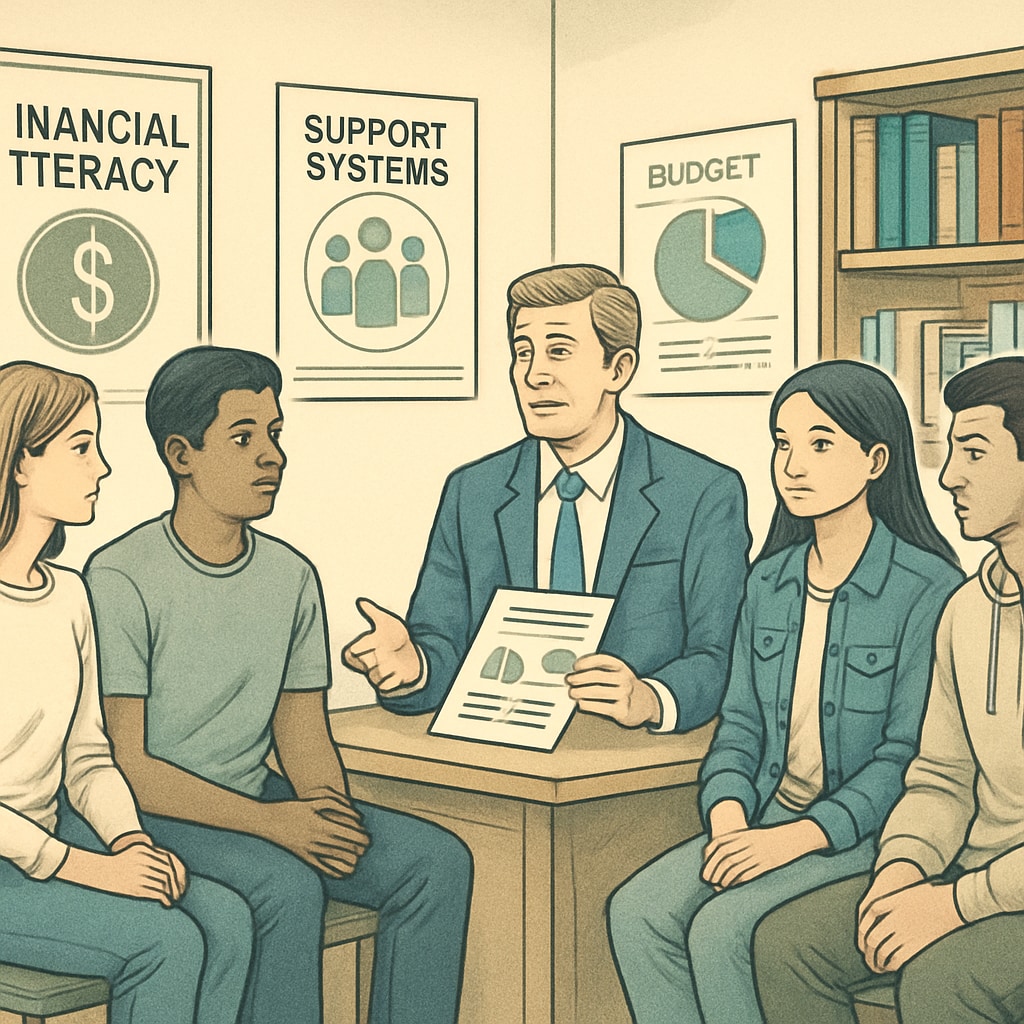For many students, pursuing higher education is a journey filled with challenges, both academic and financial. The increasing reliance on crowdfunding platforms to pay tuition fees for the final semester, particularly in cases like medical school applications, highlights the systemic gaps in financial support. This issue raises important questions about how the K12 education system can better prepare students to manage their finances and access resources to ensure their academic continuity. In this article, we explore the financial obstacles faced by students and propose practical measures to build a supportive financial ecosystem for education.
Why Crowdfunding for Tuition Is Becoming Common
Crowdfunding for tuition has become a lifeline for many students who are unable to afford their final semester fees. Platforms such as GoFundMe have seen cases where students, including those applying to prestigious medical schools, share their stories and appeal for public support. While this approach provides temporary relief, it underscores a deeper issue: the lack of comprehensive financial planning and support systems throughout their academic journey.

One of the main reasons students resort to crowdfunding is the rising cost of education. According to Wikipedia’s data on student loans, the average tuition for a four-year college in the U.S. has skyrocketed over the past few decades, putting immense pressure on families. As a result, students are left scrambling for last-minute financial resources, often jeopardizing their educational dreams.
Addressing Financial Literacy During K12 Education
The reliance on crowdfunding is often a symptom of inadequate financial literacy taught during the K12 stage. Students frequently graduate high school with little understanding of budgeting, saving, or managing loans, leaving them vulnerable to financial hardships during college. Incorporating financial education into K12 curriculums could mitigate these issues by equipping students with essential knowledge and tools.
- Budgeting Basics: Teaching students how to track expenses and set realistic savings goals.
- Understanding Loans: Introducing concepts like interest rates and repayment plans.
- Scholarship Awareness: Providing resources to identify and apply for scholarships early.
By focusing on these areas, schools can lay the groundwork for students to make informed decisions about financing their education. For example, Britannica defines financial literacy as a crucial skill that empowers individuals to manage money effectively, a skill especially important for students facing rising tuition costs.
Building a Financial Support Ecosystem
In addition to improving financial literacy, constructing a robust financial support system is essential for educational success. Such a system should involve collaboration between schools, governments, and private organizations to offer consistent aid throughout a student’s academic journey.

Key components of this ecosystem could include:
- Early Intervention Programs: Identifying and supporting students from low-income families as early as elementary school.
- Expanded Scholarship Opportunities: Creating more accessible and diverse scholarships for students across various academic disciplines.
- Financial Counseling Services: Offering personalized advice to students and parents on how to plan for college expenses.
- Public-Private Partnerships: Encouraging businesses to sponsor education initiatives that reduce the financial burden on students.
These initiatives would not only reduce the need for last-minute crowdfunding but also create a more equitable education system where students can focus on academics rather than financial stress.
Conclusion: Securing the Future of Education
The growing trend of students crowdfunding tuition fees serves as a stark reminder of the gaps in our financial support systems. By addressing these issues through financial education during K12 and creating comprehensive support networks, we can ensure that students are better prepared to navigate the costs of higher education. As a result, the dream of academic achievement, whether it be applying to medical schools or pursuing other ambitious goals, can remain within reach for all, regardless of their financial circumstances.
Education dreams should never be blocked by finances. It is time for policymakers and educators to take proactive steps in building a future where academic aspirations are met with unwavering financial support.


